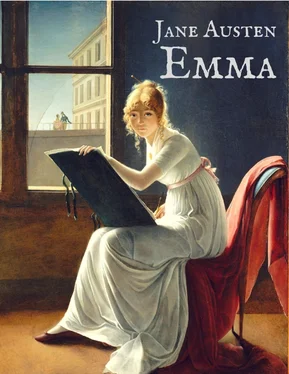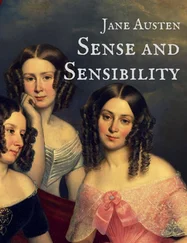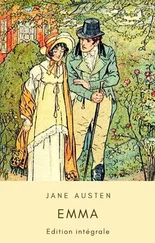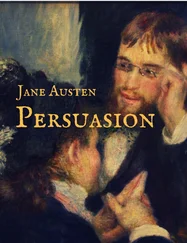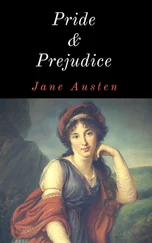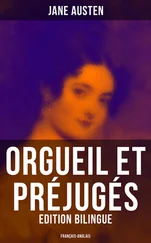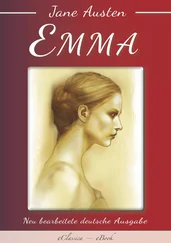These were the ladies whom Emma found herself very frequently able to collect; and happy was she, for her father's sake, in the power; though, as far as she was herself concerned, it was no remedy for the absence of Mrs. Weston. She was delighted to see her father look comfortable, and very much pleased with herself for contriving things so well; but the quiet prosings of three such women made her feel that every evening so spent was indeed one of the long evenings she had fearfully anticipated.
As she sat one morning, looking forward to exactly such a close of the present day, a note was brought from Mrs. Goddard, requesting, in most respectful terms, to be allowed to bring Miss Smith with her; a most welcome request: for Miss Smith was a girl of seventeen, whom Emma knew very well by sight, and had long felt an interest in, on account of her beauty. A very gracious invitation was returned, and the evening no longer dreaded by the fair mistress of the mansion.
Harriet Smith was the natural daughter of somebody. Somebody had placed her, several years back, at Mrs. Goddard's school, and somebody had lately raised her from the condition of scholar to that of parlour-boarder. This was all that was generally known of her history. She had no visible friends but what had been acquired at Highbury, and was now just returned from a long visit in the country to some young ladies who had been at school there with her.
She was a very pretty girl, and her beauty happened to be of a sort which Emma particularly admired. She was short, plump, and fair, with a fine bloom, blue eyes, light hair, regular features, and a look of great sweetness, and, before the end of the evening, Emma was as much pleased with her manners as her person, and quite determined to continue the acquaintance.
She was not struck by any thing remarkably clever in Miss Smith's conversation, but she found her altogether very engaging—not inconveniently shy, not unwilling to talk—and yet so far from pushing, shewing so proper and becoming a deference, seeming so pleasantly grateful for being admitted to Hartfield, and so artlessly impressed by the appearance of every thing in so superior a style to what she had been used to, that she must have good sense, and deserve encouragement. Encouragement should be given. Those soft blue eyes, and all those natural graces, should not be wasted on the inferior society of Highbury and its connexions. The acquaintance she had already formed were unworthy of her. The friends from whom she had just parted, though very good sort of people, must be doing her harm. They were a family of the name of Martin, whom Emma well knew by character, as renting a large farm of Mr. Knightley, and residing in the parish of Donwell—very creditably, she believed—she knew Mr. Knightley thought highly of them—but they must be coarse and unpolished, and very unfit to be the intimates of a girl who wanted only a little more knowledge and elegance to be quite perfect. She would notice her; she would improve her; she would detach her from her bad acquaintance, and introduce her into good society; she would form her opinions and her manners. It would be an interesting, and certainly a very kind undertaking; highly becoming her own situation in life, her leisure, and powers.
She was so busy in admiring those soft blue eyes, in talking and listening, and forming all these schemes in the in-betweens, that the evening flew away at a very unusual rate; and the supper-table, which always closed such parties, and for which she had been used to sit and watch the due time, was all set out and ready, and moved forwards to the fire, before she was aware. With an alacrity beyond the common impulse of a spirit which yet was never indifferent to the credit of doing every thing well and attentively, with the real good-will of a mind delighted with its own ideas, did she then do all the honours of the meal, and help and recommend the minced chicken and scalloped oysters, with an urgency which she knew would be acceptable to the early hours and civil scruples of their guests.
Upon such occasions poor Mr. Woodhouse's feelings were in sad warfare. He loved to have the cloth laid, because it had been the fashion of his youth, but his conviction of suppers being very unwholesome made him rather sorry to see any thing put on it; and while his hospitality would have welcomed his visitors to every thing, his care for their health made him grieve that they would eat.
Such another small basin of thin gruel as his own was all that he could, with thorough self-approbation, recommend; though he might constrain himself, while the ladies were comfortably clearing the nicer things, to say:
“Mrs. Bates, let me propose your venturing on one of these eggs. An egg boiled very soft is not unwholesome. Serle understands boiling an egg better than any body. I would not recommend an egg boiled by any body else; but you need not be afraid, they are very small, you see—one of our small eggs will not hurt you. Miss Bates, let Emma help you to a little bit of tart—a very little bit. Ours are all apple-tarts. You need not be afraid of unwholesome preserves here. I do not advise the custard. Mrs. Goddard, what say you to half a glass of wine? A small half-glass, put into a tumbler of water? I do not think it could disagree with you.”
Emma allowed her father to talk—but supplied her visitors in a much more satisfactory style, and on the present evening had particular pleasure in sending them away happy. The happiness of Miss Smith was quite equal to her intentions. Miss Woodhouse was so great a personage in Highbury, that the prospect of the introduction had given as much panic as pleasure; but the humble, grateful little girl went off with highly gratified feelings, delighted with the affability with which Miss Woodhouse had treated her all the evening, and actually shaken hands with her at last!
Harriet Smith's intimacy at Hartfield was soon a settled thing. Quick and decided in her ways, Emma lost no time in inviting, encouraging, and telling her to come very often; and as their acquaintance increased, so did their satisfaction in each other. As a walking companion, Emma had very early foreseen how useful she might find her. In that respect Mrs. Weston's loss had been important. Her father never went beyond the shrubbery, where two divisions of the ground sufficed him for his long walk, or his short, as the year varied; and since Mrs. Weston's marriage her exercise had been too much confined. She had ventured once alone to Randalls, but it was not pleasant; and a Harriet Smith, therefore, one whom she could summon at any time to a walk, would be a valuable addition to her privileges. But in every respect, as she saw more of her, she approved her, and was confirmed in all her kind designs.
Harriet certainly was not clever, but she had a sweet, docile, grateful disposition, was totally free from conceit, and only desiring to be guided by any one she looked up to. Her early attachment to herself was very amiable; and her inclination for good company, and power of appreciating what was elegant and clever, shewed that there was no want of taste, though strength of understanding must not be expected. Altogether she was quite convinced of Harriet Smith's being exactly the young friend she wanted—exactly the something which her home required. Such a friend as Mrs. Weston was out of the question. Two such could never be granted. Two such she did not want. It was quite a different sort of thing, a sentiment distinct and independent. Mrs. Weston was the object of a regard which had its basis in gratitude and esteem. Harriet would be loved as one to whom she could be useful. For Mrs. Weston there was nothing to be done; for Harriet every thing.
Her first attempts at usefulness were in an endeavour to find out who were the parents, but Harriet could not tell. She was ready to tell every thing in her power, but on this subject questions were vain. Emma was obliged to fancy what she liked—but she could never believe that in the same situation she should not have discovered the truth. Harriet had no penetration. She had been satisfied to hear and believe just what Mrs. Goddard chose to tell her; and looked no farther.
Читать дальше
